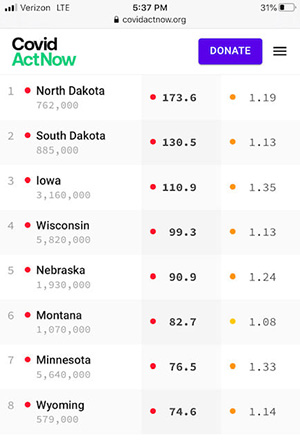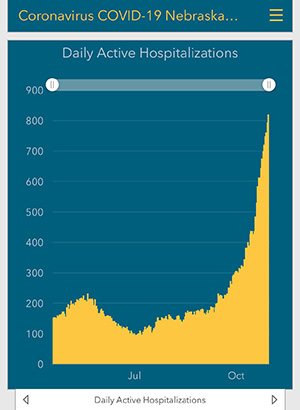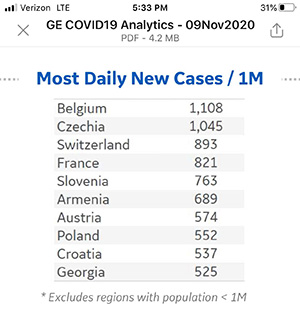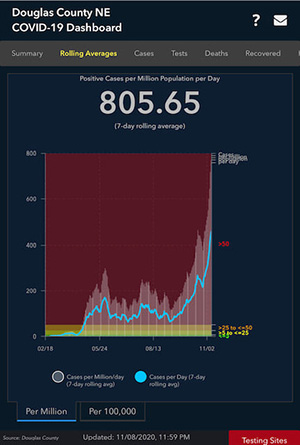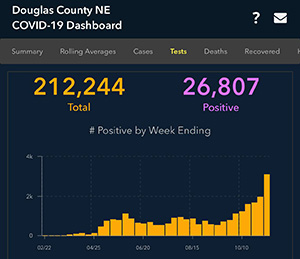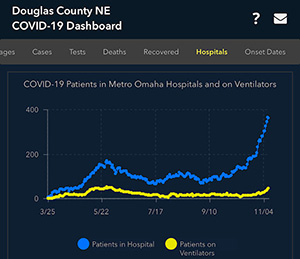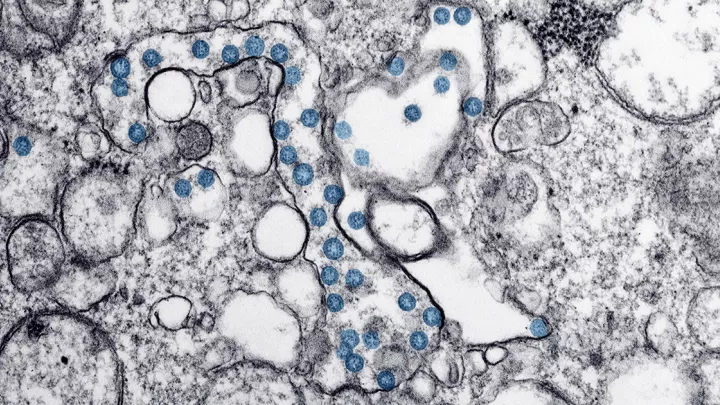I’m sorry this post is so dark, but we need to get the word out about the COVID-19 situation in Nebraska
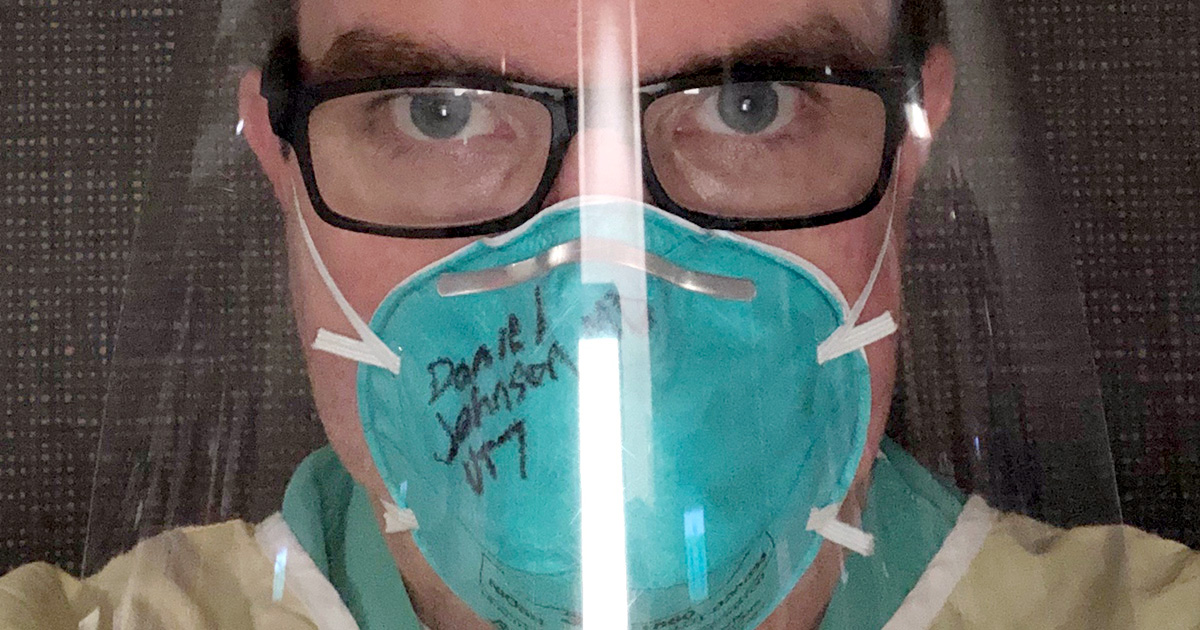
This is a personal Facebook post shared by Nebraska Medicine critical care anesthesiologist Dan Johnson, MD, to his friends and family about the seriousness of COVID-19. It is shared with permission from Dr. Johnson.
I'm sorry that my first Facebook post is so dark, but we really need to get the word out. Please inform your family and friends of the current COVID-19 situation in Nebraska and throughout the Midwest.
COVID-19 Situation Update – Nov. 10, 2020
Daniel W. Johnson, MD
Critical Care Physician in Omaha, Nebraska
Douglas County and the State of Nebraska are setting new records for new cases and hospitalizations every week. The number of deaths caused by COVID-19 will increase severely in the next few weeks.
Nebraska currently has the fifth worst outbreak in the United States (see table below). Hospitals in South Dakota and North Dakota are full, and hospitals in Nebraska are rapidly filling (see graphs below). Overly full hospitals impact the care of all conditions, not just COVID-19. If Nebraska were a European nation, we would have the fifth worst outbreak in Europe (see table below).
The doubling time for COVID-19 hospitalizations in Omaha is currently 21 days. We currently have 372 COVID patients in the hospital. This doubling time means that in 3 weeks there will be 744 COVID patients needing the hospital, and in six weeks, there will be 1,488 COVID-19 patients needing the hospital. For perspective, the Omaha metro currently has 268 unoccupied, staffed hospital beds. The math is extremely worrisome.
While hospitals make preparations for this crisis, the only way to change the course in a meaningful way is to use nonpharmaceutical interventions (NPIs). The newly issued Directed Health Measures (DHMs) issued by the State of Nebraska are not sufficient to significantly impact the dangerous trends in Omaha or across the state. I do not anticipate that state leaders will issue stronger DHMs in the near future, based on the presentation at the Capitol on Nov. 9.
This means that individual citizens and families must take matters into our own hands. Strict adherence to social distancing is essential. This means that people should not be indoors with people from outside their immediate household for any period of time. Guidelines that talk about “6 feet of distance” or “less than 15 minutes” give the impression that people can safely be near anyone they want, as long as they are 7 feet apart and for 14 minutes. This is not true. A better approach is to make decisions to purposely never be indoors with a nonhousehold member (for nonessential activities) until we get this current surge in cases under control. When you must be indoors with nonhousehold members, please wear a mask and stay as far from one another as you can.
Indoor athletics are not safe in Nebraska at the current time. I strongly advise people not to participate in them. With community prevalence as high as it is, please know that every indoor gathering is likely spreading the virus. A lack of mask-wearing increases this risk.
We must do everything we can to reverse these trends. If things get completely out of control, every family in Nebraska will be affected either by a death or by serious illness.
